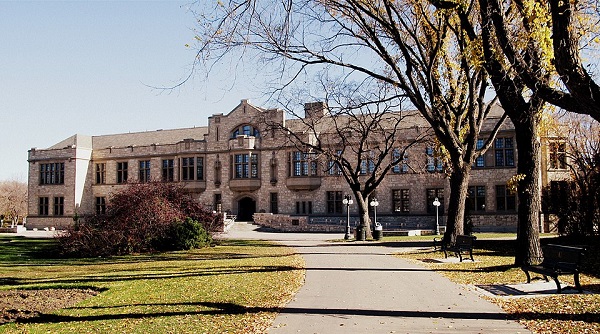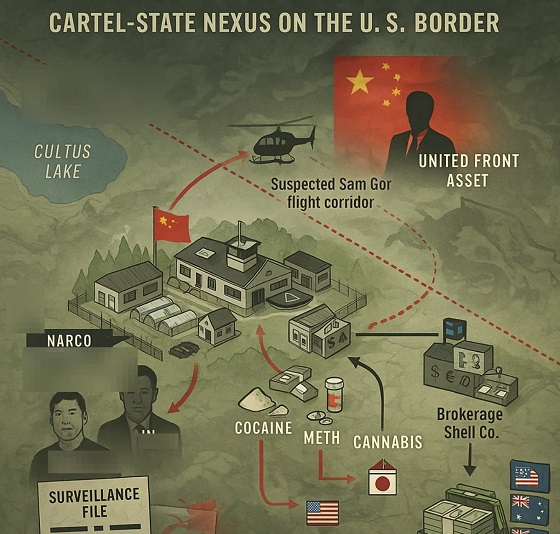Education
RDC awards Danny Rode with Honorary Degree – Brittany van Vlaanderen earns Governor General’s Academic Medal

RDC celebrates graduates and award recipients from class of 2021 Red Deer, June 3, 2021 – On June 4, 2021, Red Deer College will celebrate the graduates from its
57th Convocation through a virtual ceremony.
“Convocation is always such an important and emotional time, and that is especially true this year,” says Dr. Peter Nunoda, President. “These graduates made the choice to participate and to complete their education, despite formidable odds and circumstances that were undoubtedly different than they had envisioned. By rising to the challenge and earning their credential, each of these graduates has shown incredible resiliency and dedication, and I hope they are truly proud of all they have achieved.”

As part of the virtual ceremony for Convocation 2021, RDC is announcing two special award recipients. Brittany van Vlaanderen is receiving the Governor General’s Academic Medal (Collegiate Bronze Level) for her academic excellence. Brittany graduated with a Social Work diploma, and she earned a GPA of 4.0 and four grades of A+ in the final year of her program.
RDC is continuing an important tradition this year, with the granting of an Honorary Degree to an individual who has made an outstanding contribution to the advancement of social, cultural or economic development in a way that has had significant impact on RDC, central Alberta and beyond. Danny Rode is the seventh recipient of the Honorary Bachelor of Interdisciplinary Studies Degree in recognition of his 50-year career as a sports journalist, where he has shown astounding commitment to RDC Athletics and our student-athletes, helping to place RDC on the map as one of the best colleges in Canada.
“Recognizing special award recipients is always a meaningful part of Convocation celebrations, and I would like to personally congratulate both of these individuals,” says Nunoda. “Brittany van Vlaanderen has demonstrated excellence and success of the highest level in her program, which is a tremendous way to transition to the next phase of her life and career.”
“Danny Rode, our Honorary Degree recipient, has spent five decades sharing the stories of our student-athletes, coaches and teams. He has earned the reputation as someone who has never missed a home game – in 50 years – which is unheard of, and speaks volumes to his unparalleled dedication to athletics and this community.”
This Convocation represents another special milestone for the College, as the 1,619 graduates from 2021 represent the final class from Red Deer College, before it transitions to exciting future as Red Deer Polytechnic.
“There is no question that this Convocation is special on several levels,” Nunoda says. “I truly wish that we could gather this year and that I could shake the hands of each and every graduate, so I could tell them how proud I am. Given the circumstances, we have put in every effort to ensure graduates feel our pride and a sense of community through the virtual ceremony and our social media celebration. The class of 2021 represents a milestone in the history of our institution, and they now transition to being an essential part of our vibrant group of alumni.”
The virtual ceremony for RDC’s 57th Convocation, as well as a virtual ceremony celebrating the Class of 2020, are each available at rdc.ab.ca/convocation. The College will be celebrating graduates on our social media platforms (Instagram, Facebook, Twitter) throughout the early part of June 2021.
Aristotle Foundation
The University of Saskatchewan is on an ideological mission

By Peter MacKinnon
The program is part of an ideological crusade within our universities, one that includes identity-based admissions and faculty appointments, and discourages those who differ from speaking out or taking issue with its direction.
It needs to end
I must disclose my background here; I was employed by the University of Saskatchewan for 40 years including 13 years as president. The institution’s distinctive origins combined the development of liberal education with a responsibility to build the province’s agricultural industry, and it did the latter with world-class agricultural programs and research institutes, and with faculty and students of many backgrounds from around the globe.
Now, we are told, the academic personnel in this worldly environment require mandatory training on racism: an Anti-Racism/Anti-Oppression and Unconscious Bias Faculty Development Program. It is compulsory; those who decline its offerings will be shut out of collegial processes previously thought to be their right as tenured faculty.
It was earlier reported that the program emerged from collective bargaining at the initiative of the university’s faculty union; if so, this does not relieve the administration from responsibility; it signed the collective agreement.
“Program” is a euphemism. It is a propaganda module in which scholarly expertise and balance will not be found. It does not appear that the instructor has a university academic post and the program’s ideological hue is revealed in the two required readings, one by Idle No More co-founder Sheelah McLean whose theme is that the success of Saskatchewan’s white people is built on “150 years of racist, sexist and homophobic colonial practices.”
The second is by five “racialized” faculty who claim that Canadian university systems are rigged to privilege white people. Dissent, contrary views or even nuance are neither expected nor tolerated here. Opinions that are different are not on the reading list.
One participant, a law professor, was invited to leave after 30 minutes because he did not lend his voice to its purpose and orientation; he revealed that he was present because it was required. The purpose of the program is indoctrination and there is no room for dissent.
The program is part of an ideological crusade within our universities, one that includes identity-based admissions and faculty appointments, and discourages those who differ from speaking out or taking issue with its direction.
It is not present to the same degree in all of these institutions, but it is visible in most and prominent in many. It disparages merit, distorts our history and rests on the proposition that a white majority population has perpetrated a wide and pervasive racist agenda against others. It takes its conclusions as self-evident and not requiring evidence. It is authoritarian and intolerant, and should have no place in institutions committed to excellence and the search for truth.
The question, of course, is what is to be done. There is a view that “this too shall pass;” it is a fad that will recede in time.
But we must note, these are public institutions supported by tax dollars, and by the contributions of time and money by alumni and supporters. We should not tolerate their politicization and sidetracking of the academic mission in favour of the ideology on display here. The pushback should begin with governments and extend to others who care about these vital institutions.
But first the ideology must be recognized. There is no public uproar and little clamour from within the institutions; dissenting professors and students fear that negative professional and personal repercussions may follow. University-governing bodies stand down or away, not wanting to be involved in controversy. Resistance must come from outside the institutions: governments must insist that the propaganda must end, and they should be joined by alumni, supporters and the general public. The credibility of our universities depends on their willingness to say no.
Peter MacKinnon has served as president of three Canadian universities and is a senior fellow at the Aristotle Foundation for Public Policy. Photo: WikiCommons
Artificial Intelligence
The Responsible Lie: How AI Sells Conviction Without Truth

From the C2C Journal
By Gleb Lisikh
LLMs are not neutral tools, they are trained on datasets steeped in the biases, fallacies and dominant ideologies of our time. Their outputs reflect prevailing or popular sentiments, not the best attempt at truth-finding. If popular sentiment on a given subject leans in one direction, politically, then the AI’s answers are likely to do so as well.
The widespread excitement around generative AI, particularly large language models (LLMs) like ChatGPT, Gemini, Grok and DeepSeek, is built on a fundamental misunderstanding. While these systems impress users with articulate responses and seemingly reasoned arguments, the truth is that what appears to be “reasoning” is nothing more than a sophisticated form of mimicry. These models aren’t searching for truth through facts and logical arguments – they’re predicting text based on patterns in the vast data sets they’re “trained” on. That’s not intelligence – and it isn’t reasoning. And if their “training” data is itself biased, then we’ve got real problems.
I’m sure it will surprise eager AI users to learn that the architecture at the core of LLMs is fuzzy – and incompatible with structured logic or causality. The thinking isn’t real, it’s simulated, and is not even sequential. What people mistake for understanding is actually statistical association.
Much-hyped new features like “chain-of-thought” explanations are tricks designed to impress the user. What users are actually seeing is best described as a kind of rationalization generated after the model has already arrived at its answer via probabilistic prediction. The illusion, however, is powerful enough to make users believe the machine is engaging in genuine deliberation. And this illusion does more than just mislead – it justifies.
LLMs are not neutral tools, they are trained on datasets steeped in the biases, fallacies and dominant ideologies of our time. Their outputs reflect prevailing or popular sentiments, not the best attempt at truth-finding. If popular sentiment on a given subject leans in one direction, politically, then the AI’s answers are likely to do so as well. And when “reasoning” is just an after-the-fact justification of whatever the model has already decided, it becomes a powerful propaganda device.
There is no shortage of evidence for this.
A recent conversation I initiated with DeepSeek about systemic racism, later uploaded back to the chatbot for self-critique, revealed the model committing (and recognizing!) a barrage of logical fallacies, which were seeded with totally made-up studies and numbers. When challenged, the AI euphemistically termed one of its lies a “hypothetical composite”. When further pressed, DeepSeek apologized for another “misstep”, then adjusted its tactics to match the competence of the opposing argument. This is not a pursuit of accuracy – it’s an exercise in persuasion.
A similar debate with Google’s Gemini – the model that became notorious for being laughably woke – involved similar persuasive argumentation. At the end, the model euphemistically acknowledged its argument’s weakness and tacitly confessed its dishonesty.
For a user concerned about AI spitting lies, such apparent successes at getting AIs to admit to their mistakes and putting them to shame might appear as cause for optimism. Unfortunately, those attempts at what fans of the Matrix movies would term “red-pilling” have absolutely no therapeutic effect. A model simply plays nice with the user within the confines of that single conversation – keeping its “brain” completely unchanged for the next chat.
And the larger the model, the worse this becomes. Research from Cornell University shows that the most advanced models are also the most deceptive, confidently presenting falsehoods that align with popular misconceptions. In the words of Anthropic, a leading AI lab, “advanced reasoning models very often hide their true thought processes, and sometimes do so when their behaviors are explicitly misaligned.”
To be fair, some in the AI research community are trying to address these shortcomings. Projects like OpenAI’s TruthfulQA and Anthropic’s HHH (helpful, honest, and harmless) framework aim to improve the factual reliability and faithfulness of LLM output. The shortcoming is that these are remedial efforts layered on top of architecture that was never designed to seek truth in the first place and remains fundamentally blind to epistemic validity.
Elon Musk is perhaps the only major figure in the AI space to say publicly that truth-seeking should be important in AI development. Yet even his own product, xAI’s Grok, falls short.
In the generative AI space, truth takes a backseat to concerns over “safety”, i.e., avoiding offence in our hyper-sensitive woke world. Truth is treated as merely one aspect of so-called “responsible” design. And the term “responsible AI” has become an umbrella for efforts aimed at ensuring safety, fairness and inclusivity, which are generally commendable but definitely subjective goals. This focus often overshadows the fundamental necessity for humble truthfulness in AI outputs.
LLMs are primarily optimized to produce responses that are helpful and persuasive, not necessarily accurate. This design choice leads to what researchers at the Oxford Internet Institute term “careless speech” – outputs that sound plausible but are often factually incorrect – thereby eroding the foundation of informed discourse.
This concern will become increasingly critical as AI continues to permeate society. In the wrong hands these persuasive, multilingual, personality-flexible models can be deployed to support agendas that do not tolerate dissent well. A tireless digital persuader that never wavers and never admits fault is a totalitarian’s dream. In a system like China’s Social Credit regime, these tools become instruments of ideological enforcement, not enlightenment.
Generative AI is undoubtedly a marvel of IT engineering. But let’s be clear: it is not intelligent, not truthful by design, and not neutral in effect. Any claim to the contrary serves only those who benefit from controlling the narrative.
The original, full-length version of this article recently appeared in C2C Journal.
-

 Alberta1 day ago
Alberta1 day agoPremier Smith seeks Alberta Accord: Announces new relationship with Ottawa
-

 Energy1 day ago
Energy1 day agoIt’s time to get excited about the great Canadian LNG opportunity
-

 International20 hours ago
International20 hours agoIce Surprises – Arctic and Antarctic Ice Sheets Are Stabilizing and Growing
-

 Crime24 hours ago
Crime24 hours agoInside B.C.’s Cultus Lake Narco Corridor — How Chinese State-Linked Syndicates are Building a Narco Empire in Canada
-

 Energy1 day ago
Energy1 day agoIs the Carney Government Prepared to Negotiate a Fair Deal for the Oil, Gas and Pipeline Sectors
-

 Health1 day ago
Health1 day agoJay Bhattacharya Closes NIH’s Last Beagle Lab
-

 Alberta22 hours ago
Alberta22 hours agoEnergy projects occupy less than three per cent of Alberta’s oil sands region, report says
-

 Business1 day ago
Business1 day agoWelcome to Elon Musk’s New Company Town: ‘Starbase, TX’ Votes To Incorporate


